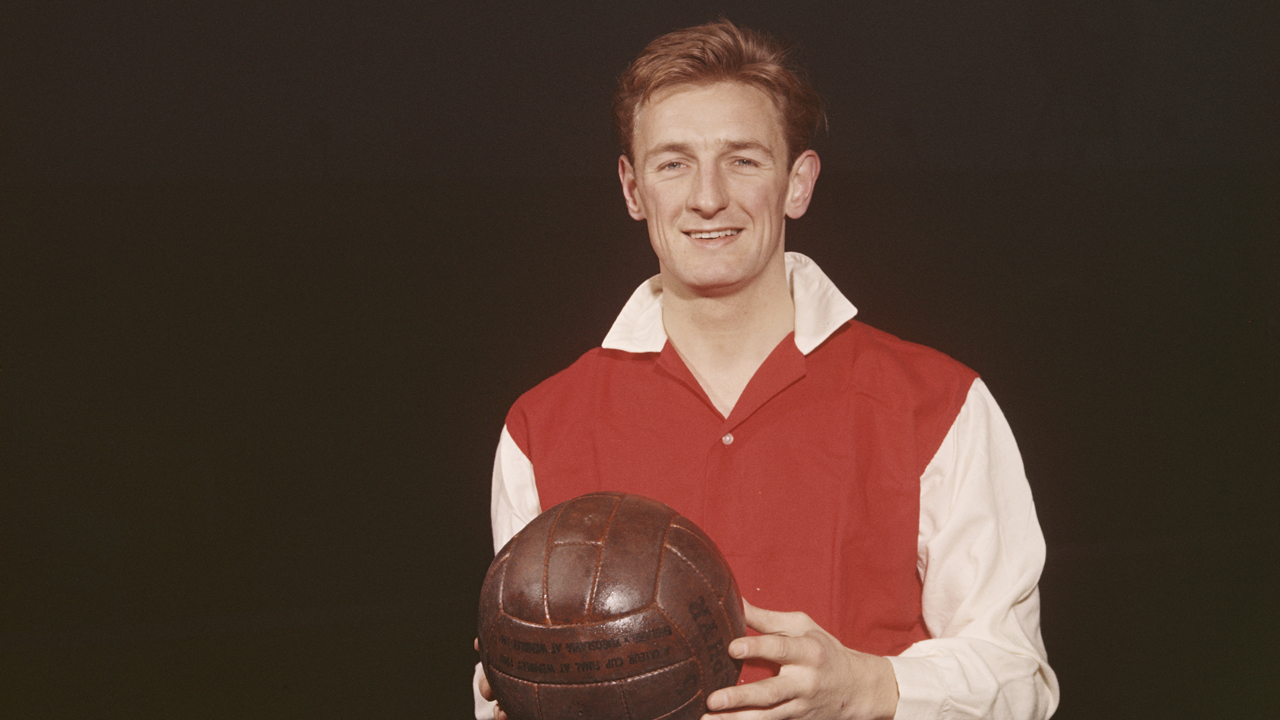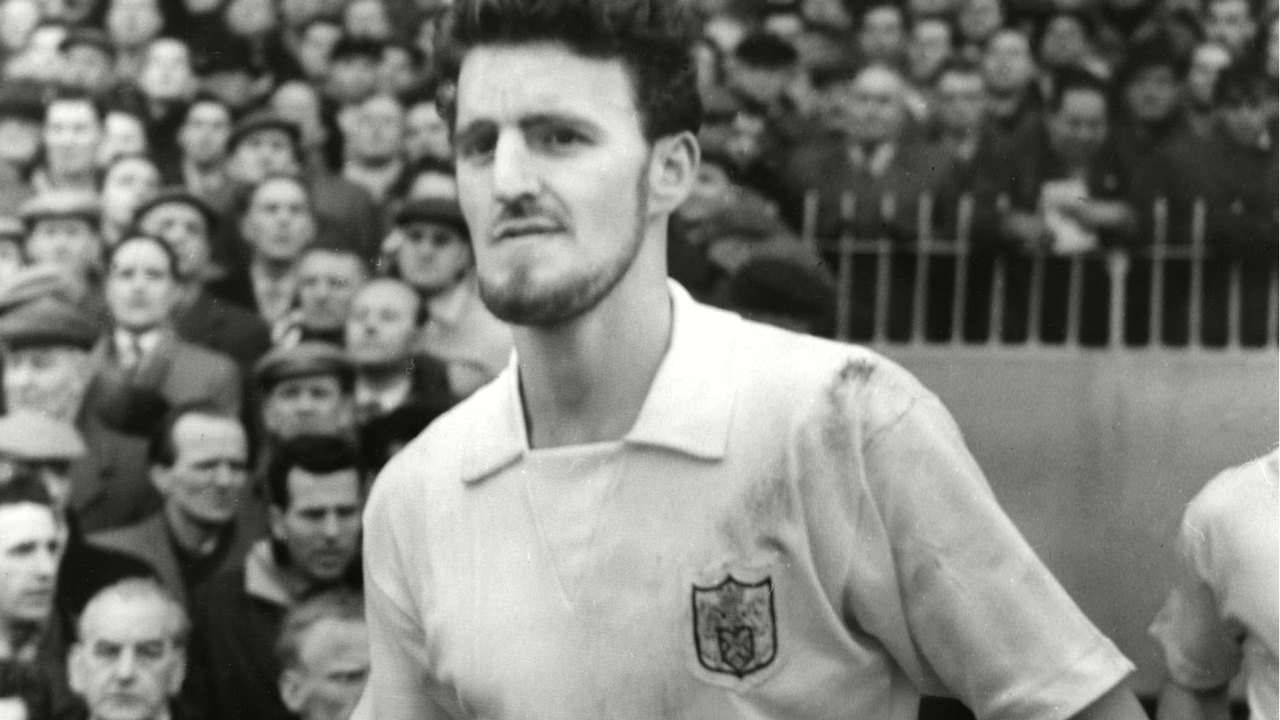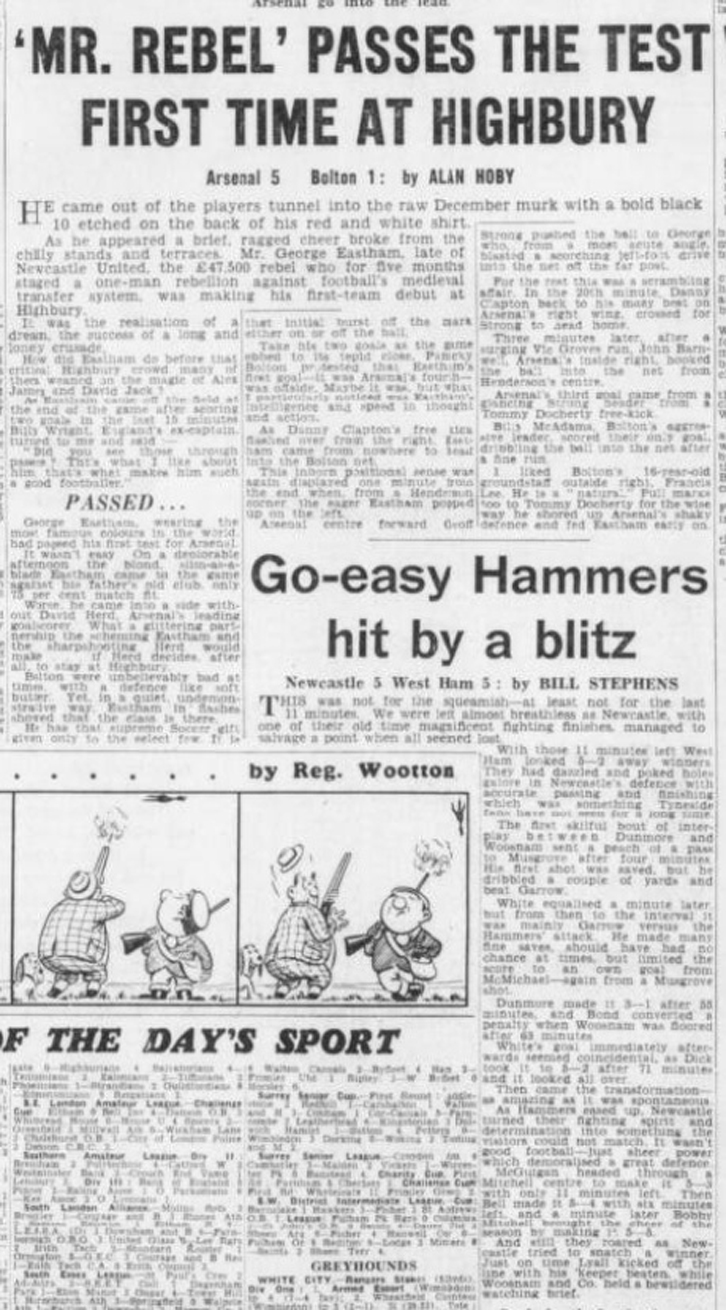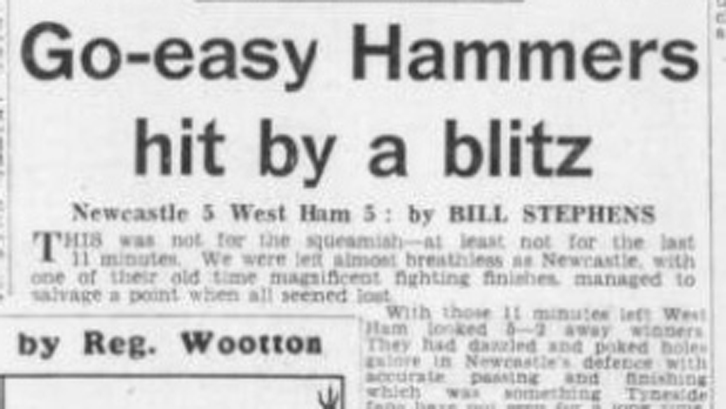The UK Newspaper Archive reveals the day a ten-goal thriller, a returning ‘striker’ and the fight to abolish the maximum wage dominated the back pages...
Saturday 10 December 1960 saw West Ham United play out the highest-scoring draw in the Club’s history.
The Hammers were held 5-5 in a First Division fixture at Sunday’s opponents Newcastle United, conceding three goals in the final eleven minutes and needing a last-minute goal-line clearance from John Lyall to avoid a dramatic defeat.
However, while the Irons and the Magpies were playing out a ten-goal thriller at St James’ Park, it was the appearance of a former Newcastle player that same day that dominated the headlines.
George Eastham made his debut for Arsenal, ending a one-man crusade against the ‘retain-and-transfer’ system that enabled clubs to prevent players moving freely. The system allowed clubs to retain a player’s registration if they did not wish to sell them or allow them to join a new team at the end of their contract.
Eastham had wanted to leave Newcastle at the end of the 1959/60 season and put in a transfer request. Newcastle refused to let the inside-forward leave, so Eastham effectively went on strike, refused to play for the Magpies and moved to Surrey, where he sold cork for a family friend and earned more money than he would have done as a footballer.
In October 1960, Newcastle relented and sold Eastham to Arsenal for a £47,500 fee.

He worked his way back to fitness under manager George Swindin and debuted on 10 December, scoring two goals in a 5-1 home win over Bolton Wanderers at Highbury.
That was not the end of the story, however, as Eastham did not want his fellow players to suffer the same circumstances.
In 1963, aided by a £15,000 grant from the Professional Footballers' Association (PFA) to pay his legal fees, Eastham took Newcastle United to the High Court, claiming unfair restraint of trade, and that the club owed him £400 in unpaid wages and £650 in unpaid bonuses.
The judge, Mr Justice Wilberforce, ruled partly in Eastham's favour, stating that the retain-and-transfer system was unreasonable and ultimately reforming the British transfer market, removing the ‘retain’ element and setting up a transfer tribunal to mediate disputes between players and clubs.
At the same time, PFA chairman and Fulham player Jimmy Hill was leading a campaign for the maximum £20 weekly wage for players and the ‘retain-and-transfer’ system to both be abolished.
Hill and the PFA negotiated unsuccessfully with the Football Association, the Football League and the Ministry of Labour and, with the backing of star names, hundreds of players voted to strike.
In January 1961, just days before the strike was due to start, the PFA’s demands were met, the maximum wage was abolished and then Fulham’s Johnny Haynes famously became the first ‘£100-a-week’ player in English football.

The back page of the Sunday Mirror of Sunday 11 December 1960 covered all three topics - West Ham’s record-setting draw at Newcastle, Eastham’s return to action and the ongoing debate over the maximum wage.
Of the 5-5 draw on Tyneside, Bill Stephens wrote: “This was not for the squeamish - at least not for the last 11 minutes. We were left almost breathless as Newcastle, with one of their old time magnificent fighting finishes, managed to salvage a point when all seemed lost.”
There was no such late drama in north London, where Alan Hoby was impressed by Eastham, writing: “It was the realisation of a dream, the success of a long and lonely crusade.
“As Eastham came off the pitch at the end of the game after scoring two goals in the last 15 minutes Billy Wright, England’s ex-captain, turned to me and said: ‘Did you see those through passes? That’s what I like about him, that’s what makes him such a good footballer’.
“George Eastham, wearing the most famous colours in the world, had passed his first test for Arsenal.”
Eastham would go on to both impress on the pitch and protest off it, falling out with Arsenal over his wage demands, yet later being appointed captain and named in England’s squad for the triumphant 1966 FIFA World Cup finals.
In 1972, he scored the winner as Stoke City lifted the League Cup - having defeated West Ham in the semi-finals - before moving to South Africa and coaching Black children. He was made an OBE for his services to football in 1973.

Eastham and Hill’s earlier campaigning for players’ rights was not universally popular, however, as many managers and club owners believed abolishing the maximum wage would lead to smaller squads, players being made redundant and smaller clubs struggling financially.
In the Sunday Mirror, Millwall manager Reg Smith’s first-person column complained of ‘pampered’ players who ‘lack the will to work’ ‘weeping crocodile tears’ over the wage issue. Smith suggested players should use their free time to learn other trades to supplement their income instead.
On the same page, Queens Park Rangers manager Alec Stock, who would later lead Fulham to their 1975 FA Cup final with West Ham, warned: “I can see hundreds of players getting the sack in a ruthless economic purge.”
As it turned out, some clubs have over-stretched themselves financially in a bid to remain competitive, while others adapted with self-imposed wage structures or by generating extra income through sponsorship and other commercial activities.
The game is now unrecognisable to the one played by George Eastham and Jimmy Hill.
Sixty-five years on, players are free to move at the end of their contracts and earn unlimited wages - and they should forever be grateful to two crusading players who put their fellow professionals ahead of themselves.

